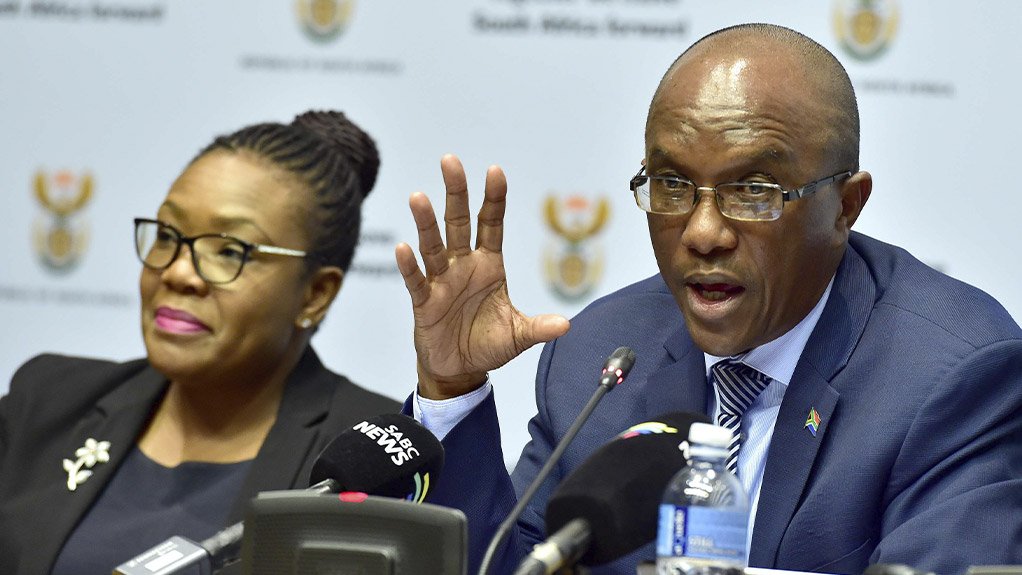State-owned enterprises (SOEs) are increasingly relying on government guarantees to secure loans, but this reflects badly on government's debt and could result in credit downgrades, the Auditor-General of South Africa warned.
On Wednesday, Auditor General Kimi Makwetu briefed Parliament's Standing Committee on Public Accounts (Scopa) on the audit outcomes of national and provincial government for the 2018/19 financial year.
There were a total of 432 auditees, which included government departments and public entities.
Overall, less than a quarter (23%) of auditees received clean audits, while 11% or 49 audits were outstanding, as at September 2, 2019. Most of the outstanding audits were from public entities.
The AG audits 14 State-owned enterprises. These include national broadcaster the South African Broadcasting Corporation, airlines SA Express and South African Airways (SAA), the Post Office, the Land Bank and Denel.
The AG does not audit Eskom, diamond miner Alexkor or the Industrial Development Corporation, as it does not have the resources to do so, Makwetu told members of Parliament. However, the AG will be deploying capacity to be the signing-off auditor for Transnet for the 2020/21 year.
Outstanding audits
The AG only completed audits of 11 SOEs. The remaining three – SAA, Trans-Caledon Tunnel Authority (TCTA) and the South African Nuclear Energy Corporation (Necsa) had outstanding audits.
While the AG expects to complete audits for Necsa and TCTA by the end of October, no timeline was given for the SAA audit.
Fin24 previously reported that SAA's annual financial report could not be tabled in September due to financial challenges. Makwetu cited the same reason for not being able to complete the audit.
However, he said the bulk of the auditing had been done and about 10% of the work is outstanding.
In a statement, Scopa chairperson Mkhuleko Hlengwa said it was concerning some SOEs and government departments had not submitted their financial statements to the AG. SAA in particular had not submitted financial statements for two years, the committee heard.
"As a result of this non-submission, no auditing work has been done for 2019 at SAA due to the outstanding information. This shows the disregard of SAA for the law and sets a wrong precedence of normalising the non-submission of financial statements," Hlengwa said.
"Some of the reasons for outstanding audits on SOEs are because of known going concern difficulties and challenges," the AG's presentation to Parliament read. "Two of the SOEs for which the audit was finalised had going concerns problems – namely Petroleum Oil and Gas Corporation of South Africa and the SA Post Office."
Government exposure
The AG further unpacked that during the 2018/19 year, government guarantees amounting to R446-billion were issued to 11 SOEs. This includes SOEs which are not audited by the AG.
"The total government exposure relating to these guarantees amount to R328-billion," the AG said.
The AG noted that SOEs used the guarantees to obtain loans from lenders. "Guarantees or bailouts for SOEs would increase the budget deficit of the fiscus, government debt and borrowing costs, and result in downgrades from rating agencies," the presentation read.
Irregular expenditure
The report showed that irregular expenditure by the 11 audited SOEs amounted to R1.35-billion. The SABC accounted for the largest amount (R351-million) of irregular expenditure, followed by Airports Company South Africa and Denel.
Irregular expenditure is incurred through the non-compliance of supply chain management processes, as well as payments made without following due process, Makwetu said.
EMAIL THIS ARTICLE SAVE THIS ARTICLE
To subscribe email subscriptions@creamermedia.co.za or click here
To advertise email advertising@creamermedia.co.za or click here











